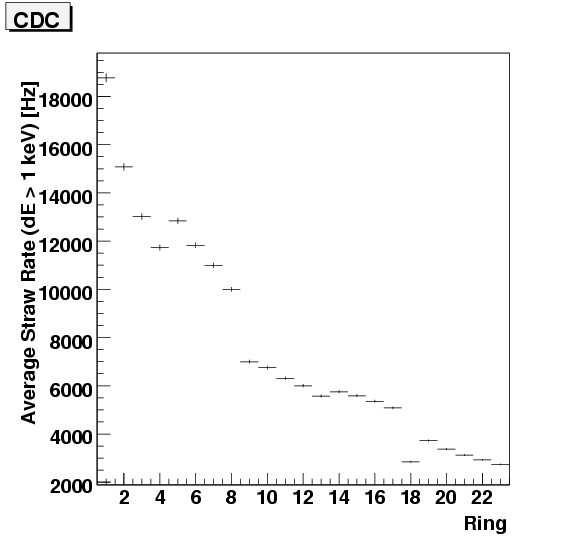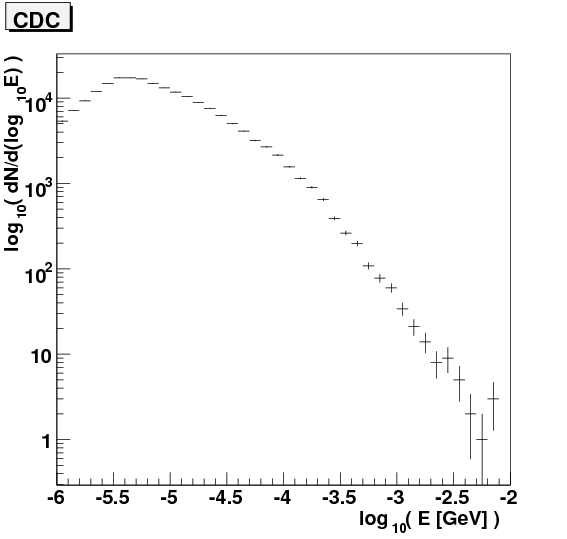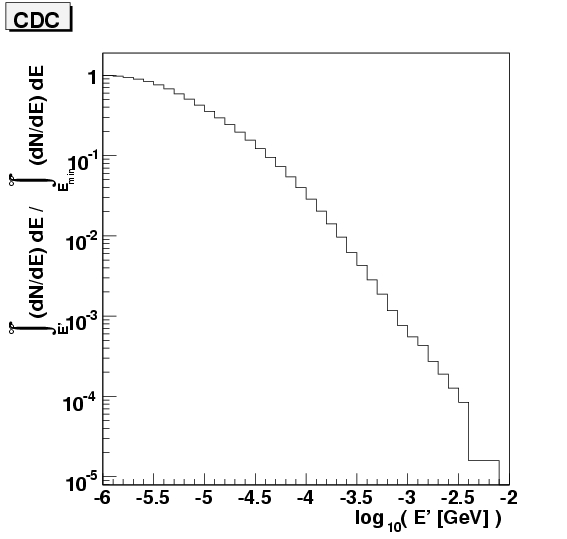Difference between revisions of "CDC Backgrounds"
From GlueXWiki
(→Items for Discussion) |
|||
| Line 12: | Line 12: | ||
* Should stereo geometry be so noticeable in background rate? If the noise source is far upstream, then stereo straws will present a large cross section to the noise source than axial straws. | * Should stereo geometry be so noticeable in background rate? If the noise source is far upstream, then stereo straws will present a large cross section to the noise source than axial straws. | ||
| + | ''This question is under study, results forthcoming. [rtj]'' | ||
| + | * There seems to be something wrong with CDC layer 18. Is this just a bug in the geometry or something else? | ||
| + | ''This was a bug in the hdds geometry, due to a typographical error in the xml source document. The fix has been checked into the central repository. [rtj]'' | ||
== Plots == | == Plots == | ||
Revision as of 15:08, 23 January 2007
Back to Background Rate Studies
Detector Configuration
- Double-Hit Resolution: 250 ns
- Threshold: 1 keV
- Maximum Number of Hits (per Event): 100
Items for Discussion
- Should stereo geometry be so noticeable in background rate? If the noise source is far upstream, then stereo straws will present a large cross section to the noise source than axial straws.
This question is under study, results forthcoming. [rtj]
- There seems to be something wrong with CDC layer 18. Is this just a bug in the geometry or something else?
This was a bug in the hdds geometry, due to a typographical error in the xml source document. The fix has been checked into the central repository. [rtj]


